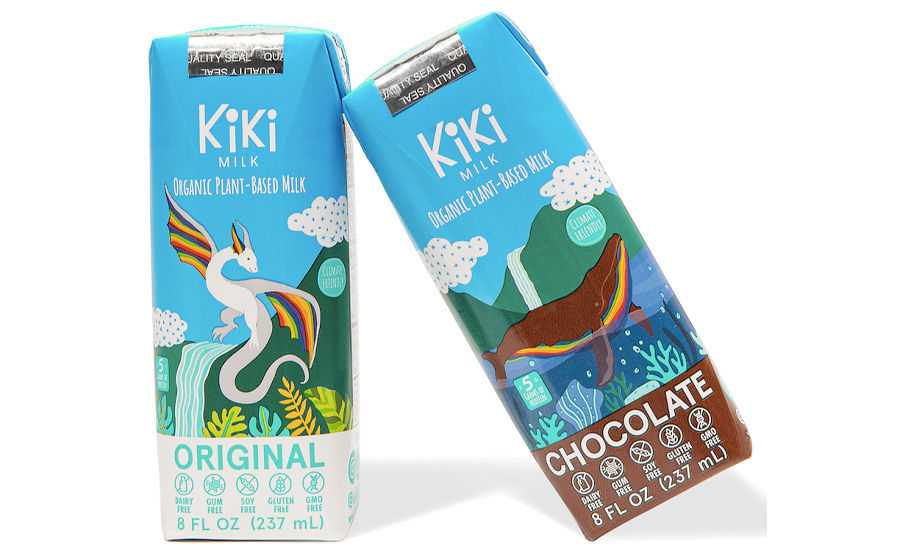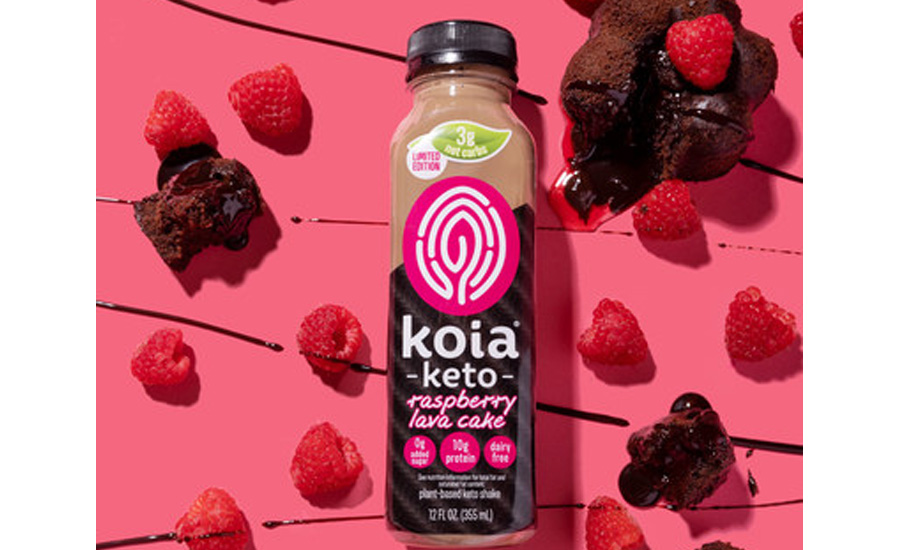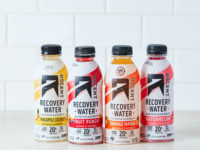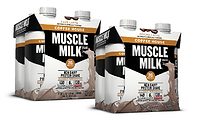When interviewed by the Daily Mail UK in 2012, Giorgio Armani, acclaimed fashion designer and credited pioneer of red carpet fashion, said: “My work today is perceived as being classic, but when I first started out, it was a break from the norm. Since then, I have continued to reinvent myself. I don't change my style, but I allow it to evolve.” Whereas today’s big mover in the protein-fortified beverage space is plant-based products, experts note that as consumer tastes and formulations have evolved, the marketplace has undergone tremendous shifts in the past decade.
A decade ago, as brands were experimenting with first generation plant-based milk alternatives built around soy protein, category pioneers were plagued with significant flavor challenges, notes Mark Fahlin, business development at Minneapolis-based Cargill.
“Subsequent product development efforts ushered in a second and third generation of products that delivered much improved taste profiles and an expanding array of botanical sources,'' he says. “Now we’re in the midst of a fourth wave of product development. This time, protein fortification is the watchword, as brands race to close the protein gap between plant-based options and conventional milks.”
Tara Kozlowich, vice president of marketing at Merit Functional Foods, Winnipeg, Canada, highlights how plant-based has advanced beyond being a niche market.

Image courtesy of PlantBaby
“While the plant-based protein market is already considerably large, the potential of the market is even more impressive and exciting,” she says. “SPINS retail sales data released in April 2021 indicated that grocery sales of plant-based products that directly replace animal products grew 27% over the previous year ― with overall plant-based food sales growing almost 2.5 times faster than total food sales from 2018 to 2020.
“SPINS data also shows that sales of plant-based ready-to-drink beverages grew 12% in the past year and 33% over the past two years. Plant-based milk alternatives are leading the charge, accounting for 35% of the total plant-based food market,” she continues.
Kauai, Hawaii-based PlantBaby, a direct-to-consumer nutrition brand, recently announced the launch of Kiki Milk in Original and Chocolate varieties. Formulated alongside leading pediatricians and nutritionists, Kiki Milk is a certified organic, clean-label, dairy-free milk designed to meet the nutritional needs of growing children, the company says. Made with organic whole food ingredients and superfoods like oats, sprouted pumpkin seeds, hemp seeds, coconut and Aquamin, Kiki Milk is omega-rich and provides ample plant-based calcium and protein, it notes.
Today, as plant protein beverages are consumed by people outside the core vegan and vegetarian sectors, the appeal of plant protein is poised for continued growth, notes Melissa Sheridan, senior director of marketing for Kerry Taste & Nutrition, Beloit, Wis.
“Kerry’s recent global consumer research report, ‘The Protein Mindset’ highlights that plant protein is the most preferred protein source. Our research found that more than 60% of global consumers say plant proteins are their preferred protein source, ranging from 48% of consumers in North America up to 75% in the Asia Pacific region,” she explains. “The main reasons consumers are increasing their plant protein intake are sustainability and nutritional quality.”
Flavor technologies improve on beverage taste
As plant proteins often are included in products focusing on sports nutrition, general wellness and weight management, plant protein fortification is a winner with consumers, provided that the taste is there, experts note.
“In our ‘Protein Mindset’ research, taste and texture have been identified as the main reasons consumers stick to dairy protein versus plant protein for beverages,” Kerry’s Sheridan says. “This means that beverage manufacturers have to deliver better taste and texture with plant protein beverages.”
From a formulation perspective, the amount of protein is a decision driver, experts note.
“The higher the protein content, the bigger the formulation headaches,” says Vince Cavallini, beverage, dairy and convenience foods applications manager at Cargill. “Flavor, forever king in the food and beverage world, is the major consideration.”
In the beverage space, flavors can be very exposed, Cavallini explains.
“Add protein to a snack bar, and there are a host of other ingredients that help cover offnotes. Push protein levels in an almond milk and there’s not as much room to hide,” he says. “While flavor profiles of botanical proteins have come a long way in a short time, they remain prone to earthy, beany and grassy notes ― off tastes that become more apparent as inclusion levels rise.
“Compensating starts with selecting a characterizing flavor that pairs well with the protein,” he continues. “Chocolate and vanilla are often good choices, especially when aided by flavor or protein maskers, which can dramatically improve the finished product’s sensory profile.”

Image courtesy of Koia
Nutty flavors, coffee and spices also work well, says Adrianne Speranza, project leader at Westchester, Ill.-based Ingredion Inc. “Most products also leverage the use of flavor modulation technology to enhance perception of desirable flavors and reduce perception of unwanted flavor notes,” she adds.
As plant proteins often deviate from the norm on flavors, proprietary extraction and membrane filtration technology produces the highest quality and purity protein available to formulators, says Jeff Casper, director of research and applications at Merit Functional Foods.
“We’ve taken considerable steps to ensure that our products have a neutral taste so that they can work with any established flavor profile, from a truly delicious vanilla to salted caramel and beyond. It’s our belief that your protein source shouldn’t dictate or limit your beverage’s flavor,” he says.
The roles of texture, functionality in beverage formulations
As protein quality and functionality vary among plant proteins, creating a beverage formulation is much like piecing together a puzzle ― “each piece must cohesively fit together to construct the bigger picture,” says Lisa Bradford, principal scientist at Chicago-based ADM.
“At ADM, we help beverage developers anticipate undesirable attributes and overcome any challenges by identifying the best plant protein or blend within our vast plant protein portfolio and coupling that with our deep ingredient, formulation and processing expertise.
“Our recently launched MaxFlex systems help optimize protein quality and deliver protein diversity as well as great sensory appeal for beverages, including ready-to-drink (RTD) and alternative dairy,” Bradford says.
Cargill’s Cavallini notes that plant-based beverages also need the right stabilizer.
“Left to their own devices, high-protein beverages, whether made with animal or plant proteins, tend to thicken and gel over shelf life, creating off-putting textures and mouthfeels,” he explains. “In these situations, adding hydrocolloids like carrageenan or gellan gum [can] help stabilize proteins and maintain viscosity.”
When working with plant-based proteins, ingredient solubility is another concern, Cavallini says.
“For beverages targeting 1-10 grams of protein, options like pea protein typically provide enough solubility. However, push past those inclusion levels and brands historically run into texture and mouthfeel challenges, as grittiness, sandiness and viscosity become a factor,” he continues.
“Now we’re in the midst of a fourth wave of product development. This time, protein fortification is the watchword, as brands race to close the protein gap between plant-based options and conventional milks.”
- Mark Fahlin, business development at Cargill
Moreover, as brands launching plant-based fortified protein beverages often want to double down on their health halo by formulating reduced-sugar products, sugar levels can be another stumbling block, he says.
“High-intensity sweeteners like stevia are widely used in this space, and another example of how improvements on the ingredient side are reshaping formulation possibilities,” Cavallini explains. “Cargill’s newest sweetening solution, EverSweet + ClearFlo, delivers the best flavor profile yet, with plenty of sweetness and little linger, while also modifying offnotes associated with plant proteins.”
New horizons for plant proteins
As consumers increasingly take a proactive approach in holistic well-being, beverage brands that incorporate plant protein blends, including pea or almond with emerging plant protein sources, can find continued success with health-conscious shoppers, experts note.
Moreover, novel protein sources, such as cell-based and microbial fermentation, are being explored and will be vital for new innovations, says Jacquelyn Schuh, ADM’s global marketing director of protein nutrition solutions.
“On the horizon, we anticipate these novel sources making their way into functional formats like concentrates and isolates, bringing forth new product development to the market,” Schuh says. “Fermentation is of particular interest, as it lends itself to supporting a plethora of applications, including alternative dairy and specialized nutrition products.
“With fermentation, product developers can achieve intriguing and customizable offerings,” she continues. “Notably, at ADM, we recently announced our intent to partner with Asia Sustainable Foods Platform, a company wholly owned by Temasek, to provide precision fermentation consulting and technology development to skyrocket microbial fermentation possibilities.”
Kerry’s Sheridan notes that today, as most taste, texture and solubility challenges have been overcome with protein technology innovations, beverage categories have ample opportunities to expand protein fortification.
“Our research indicates that protein fortification is most appealing to consumers across high-frequency beverage items including juices, waters, smoothies and coffees,” Sheridan says. “Our solution ProDiem Refresh is a good example of pioneering protein technology supporting plant protein beverage innovation.
“ProDiem Refresh is a unique plant protein hydrolysate solution that is completely clear and soluble in water,” she continues. “This solution is a great example of innovation opening the door for manufacturers to develop protein water and refreshing beverages meeting consumer need for more diversified protein beverage offering.”
Pavel Hejsek, EverPro product owner at St. Louis-based EverGrain, notes that the plant protein movement not only brings nutritional ingredients, but also global sustainability credentials to the market.
“We truly believe that upcycled barley protein is the next big thing that will shake up the plant protein market, “Hejsek explains. “We’re proud to be a part of the plant protein movement and of the authentic sustainability credentials that our ingredients bring to our customers’ products.
“Part of what sets us apart is our achievement as one of the first global plant-based protein suppliers to achieve the Upcycled Food Association’s Upcycled Certification, and our ability to provide a consistent, plentiful supply of climate-forward, nutrient rich plant-based protein,” he continues. “We champion and celebrate other sources of protein from upcycled processes, together addressing the global $1 trillion problem that is food waste today.”
Experts agree that, as consumers are more sensitive to ingredient declarations and have a rising awareness of clean labeling and “natural” claims, beverage brands have a renewed opportunity to develop new products or reformulate current plant protein offerings.
As new plant protein options continue to hit the market, so will a steady stream of improvements to our existing botanical choices, Cargill’s Fahlin predicts.
“I’m especially excited by the work underway to enhance plant protein solubility,” he says. “While today, 10 grams of plant protein is widely viewed as the limit for most botanicals, the next generation of ingredients with enhanced solubility could open the door to plant-based beverages with 15 or more grams of protein.”






Report Abusive Comment